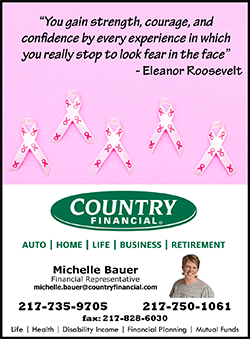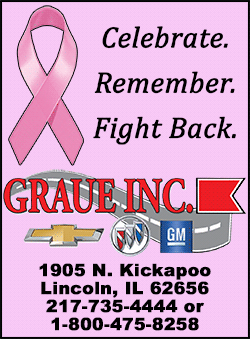|
 October
is National Breast Cancer Awareness Month. Across the country,
stories will be shared, fundraising walks will be held, and just
like every month, more women will be diagnosed with breast cancer.
For survivors, it’s also a time of reflection and continuing to live
‘a new normal,’ post-cancer. October
is National Breast Cancer Awareness Month. Across the country,
stories will be shared, fundraising walks will be held, and just
like every month, more women will be diagnosed with breast cancer.
For survivors, it’s also a time of reflection and continuing to live
‘a new normal,’ post-cancer.
When it comes to cancer, most people think about physical pain that
is often associated with a diagnosis. But the emotional toll that
comes with this serious disease can many times be just as
devastating.
Those feelings can include fear, denial, anger, sadness and more.
And the wave of emotions tends to change hourly, daily and even
minute to minute. A cancer diagnosis now becomes all-consuming for
both the person and perhaps loved ones as well.

And that can remain true even after the cancer has
come and gone.
“Life after a diagnosis completely turns your life upside down,”
says Nicole Wagner, an oncology nurse navigator for OSF HealthCare.
“It's really hard to find your footing; hard to find your bearings.
It's hard to find something solid to hold on to after something like
[a cancer diagnosis].”
Wagner encourages people to find ways to cope with their emotions.
For example, build a support group of people you feel comfortable
talking to. Find ways to relax, such as meditation, guided imagery
and exercise. Choose when and how to talk about your cancer.
If you find that you’re still struggling emotionally, it might be
time to seek help. Start by speaking to your doctor or someone you
can confide in.
Support groups are helpful for survivors currently going through
treatment. But they are also invaluable for people post-cancer.
Wagner says newly diagnosed patients can learn significant lessons
sitting alongside other survivors who are years removed from their
own diagnosis.
[to top of second column] |

“Maybe there are things we hold back from our family
because we don't want them to worry,” says Wagner. “[A support
group] is a safe place to share and be able to talk to someone who
knows exactly how you’re feeling.”
Wagner says it’s natural to have a fear of recurrence of cancer. But
it’s also crucial to give yourself time to heal after treatment. Try
not to dwell on your cancer experience, she says. But if you do feel
like something’s not right, remember to check in with your medical
team.
“It’s important to focus on the things you can control. Cancer takes
control of things that you wish it hadn't,” says Wagner. “And I
think focusing on the things you can control, like getting your
rest, being with loved ones, friends, family, singing, whatever
brings you joy, being in nature, those are things we can control.”
Some people will adapt slowly to life without any more appointments
or treatments. Many survivors have been involved in active care for
weeks, months or longer. So, what now? Wagner encourages survivors
to stay busy, whether that’s returning to work or finding new
activities such as hobbies, exercise or re-entering social circles
you were a part of before your cancer diagnosis.

And continue to accept any support that comes your
way.
“I think there is a tendency to want to rush right back to your old
life – or what looks like normal,” Wagner says. “I think it's
important for families to remember that too. Once we get through
treatment, it isn't over. There's still a lot of healing to do, and
a lot of support is needed.”
For more information on cancer care, including treatments, patient
education and support services, visit OSF HealthCare.
[OSF HEALTHCARE] |